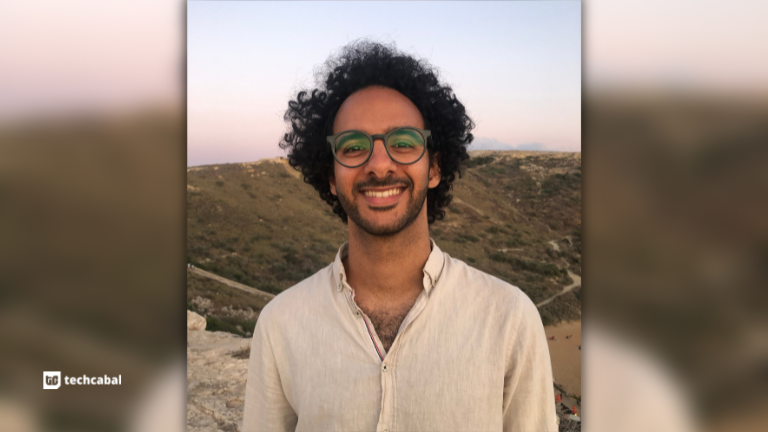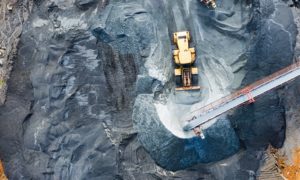Faisal is head of product at Wowzi, and he has a deep passion for all kinds of information systems.
He can often be found working, cycling, making bread or playing base-building games like Factorio. He also loves eating pancakes and hanging out with his partner and friends!
Explain your job to a five-year-old
I work alongside a wonderful group of people from many different countries. I work online using my laptop, and my job is to listen and understand a lot of opinions, problems and ideas so I can make sense of the different needs that people have. I then pass along the information to my workmates, and together we work to build, solve, and fix what is needed!
What’s something you wish you knew earlier in your career/life?
I’ve had the pleasure of dipping my toes into many different careers and studies, and I wish I had known sooner how powerful a vast diversity of experiences would be. Being able to wear many hats is an essential skill set that has come in very handy in daily and professional life.
Is product management a career you decided to go into? Or did you stumble onto it? What else would you do, if you could?
I’ve certainly been lucky to stumble into it like this! In all the fields I’ve worked, there was one constant: technology and the need to make better products. I wasn’t always in a position to do something about it, so I cherish the team and Wowzi for the opportunity.
I started my official journey into product management when I worked at a cute, well-organised agency in Tartu, Estonia, made up of very kind, caring experts, just the start I needed!
When I am feeling nostalgic, it’s for the time when I was one of two IT professionals working on a major movie set, Assassin’s Creed (2016). They were long, busy days. Many of them passed by in the blink of an eye, filled with a mixture of running around, solving problems, and laughing with colleagues. The days were full of adrenaline, and the different filming locations were hectic. What inspired me about the work was the combination of technology and real-world physical diversity and logistics that the work entailed.
As a product manager, what’s one misconception people have about your job?
The biggest misconception is that many people expect product managers to be the “CEO of the product”. However, this is very rarely the case. A good PM can make sure to translate the CEO’s vision into a product with real-world traction, but ultimately a great PM can adapt to the organisation’s needs in fulfilling the role. That’s how we provide the best value, by understanding that the product is done differently in different places and there is no set, right way to make it happen!
Is there a difference between project and product management?
Project and product management are similar in many ways but differ in others. Primarily, I find that projects have a start and an end date or, at the very least, fixed objectives and methodologies. Of course, products could be similar, but I find that products are more hit-or-miss on all these characteristics, requiring pivoting, tracking and recalibrating the course according to the market and resources in an attempt to establish and maintain a presence.
What’s the one mistake startups make when they’re building a new product?
The actual work of a startup is to build and release a product, get it into users’ hands to see if they like it, and then iterate on that. Unfortunately, a lot of noise and other priorities can get in the way of this. The startup scene is rife with voices and popular culture distorting people’s perception of the main objective, a product-market fit (PMF).
The biggest mistake for startups is neglecting to connect the definition of PMF with where they are in the journey. PMF is a state, and what happens after you hit it makes it clear that you’re there. It’s not the actual product, it’s the response of the external world to your product.
Your product is so in demand that you can’t produce enough of it; the usage is growing very fast; your servers might even break with that sudden demand; you’re hiring people as fast as possible to support the new incoming users; and there are piles of money coming in—there must be profit!
Do all products have the potential for success? Or are there some that will flip despite the effort put into it?
Everything lies on a spectrum, and any product can get points for its chance of success (or penalties) based on a number of factors.
However, the main factor determining success, and sorry to sound like a looping Instagram video here, is achieving product-market fit. Once you’re there, you are guaranteed to have a successful product in hand. Well done!
What’s one thing entry-level product managers should know?
Critical listening skills are one of the most important toolkits in your arsenal. Making sense of things and translating them into reality is built on the preconception that you can understand and question what and why it is needed by the people you are talking to.
If I could add another, it’s to find an expert to learn from. For me, at this moment, it is Michael Seibel from Y combinator!
What (singular) achievement are you most proud of?
September 15, 2018, was World Cleanup Day, a day organised by an organisation I was working with to clean up the whole world. In the months leading up to this day, I was responsible for creating a system that would allow the collection of information from thousands of regional coordinators (who, in turn, were collecting info from their thousands of tributaries).
In the weeks and days leading up to it, we were able to recruit over 100 volunteers, who were split into continents and languages. September 15 was a Saturday, but for us in the vantage of Tallinn, an Eastern European city, it was a whole weekend considering Fiji (UTC+12) and Hawaii (UTC-10). During those sleepless weekends, my team and I were able to collect the information for the cleanup operation by Sunday morning! Only some hours after the last cleanup had finished. Overall an exhilarating and exhausting experience that cemented my belief in people and my confidence to build anything!
What’s something you love doing that you’re terrible at? And something you really do not like doing that you’re great at?
I had to ask my partner for help with this question! It turns out I’m great at conflict resolution, but understandably the process is not particularly fun and takes an emotional toll on my end. Being an intermediator is somewhat of a mixed blessing. Although I don’t enjoy the process of having conflict, it does provide a long-term satisfaction in having open and addressed important points.
For something I love but I’m terrible at, it’s karaoke! I really love singing and rapping when I’m in the mood. Too bad for those around me.






















